How intolerance testing works

Intolerance 80 IgG4 antibody test
TMI Testing offer an 80 item intolerance test which is our most accurate home-to-lab intolerance test to date, but how does it work?
The intolerance 80 test takes common items often linked with intolerance symptoms and using a small blood sample, will give you a comprehensive report that you can follow to change your diet, and your life.
We test for food intolerance reactions using an approved in-vitro testing system (ELISA). Your blood sample is then exposed to a panel of food items. If a reaction is recorded, you are recorded as having an intolerance to this item, and using IgG4 blood analysis, this is the most accurate testing available.
The bodies negative response to a food is the cause of intolerance symptoms. These reactions can be removed by your body into tissue or organs, which in turn leaves to discomfort, pain, and in some cases, damage. Understanding what your body reacts to is the key to good health.
Once ordered, we’ll send you an Intolerance 80 Blood Kit which contains all the information and instructions needed to complete your sample with a small lancet and blood-spot card.
This virtually pain-free sample collection will allow you to draw a small amount of blood from your finger and return it to us in a return envelope.
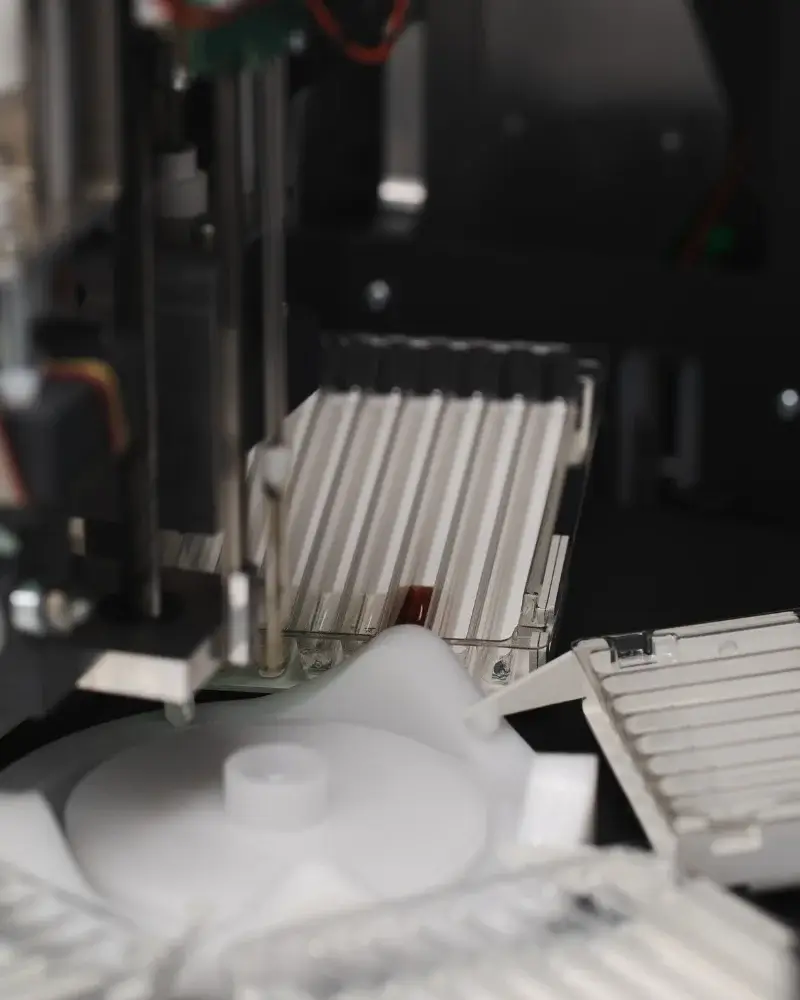
What will I receive?
Full Intolerance 80 Blood Testing Kit
Full results reporting
Free qualified consultative advice
Support and assistance
Your comprehensive report
Once we receive your sample through the post, our expert lab staff will extract the blood in our on-site labs.
You’ll receive your results within 3 –5 working days which will include:
- A full breakdown of results with explanations.
- An easy-to-follow traffic light system.
- What happens next? We help you reduce the impact of intolerance triggers and symptoms.
Intolerance testing helps you to avoid certain foods resulting in you being able to alleviate possible symptoms.
Testing for intolerances
The intolerance test is an immunoassay that determines the levels of antibody reactivity against specific allergens. Our tests are able to determine levels of antibodies against specific allergens. Using a test blotting procedure and a 6-spot blood card, the test is very similar to ELISA offered by market leaders.
Western Blotting procedures are a commonly used diagnostic tools, providing analytics to many areas of health care and immunology, as these can help a customer in the diagnosis of medical conditions.
We can measure a specific antibody response with a client’s sample, and a panel of specific allergens derived from foods. Additionally, to complete the testing and ensure the process is complete, our lab technicians require conjugate, wash solution and substrate.
All of our customers and clients’ blood samples are unique, but our testing panels are produced in an identical way, meaning they adhere to forms of quality control and compliance. Your blood samples are in safe hands with TMI Testing.
The first stage of the IgG4 immunoassay will be to apply a quantity of patient sample to the testing panel. If there are any specific antibodies present in the sample, specifically relating to those on the panel, they will bind. Every panel also has three control values that will always react the same way with known values.
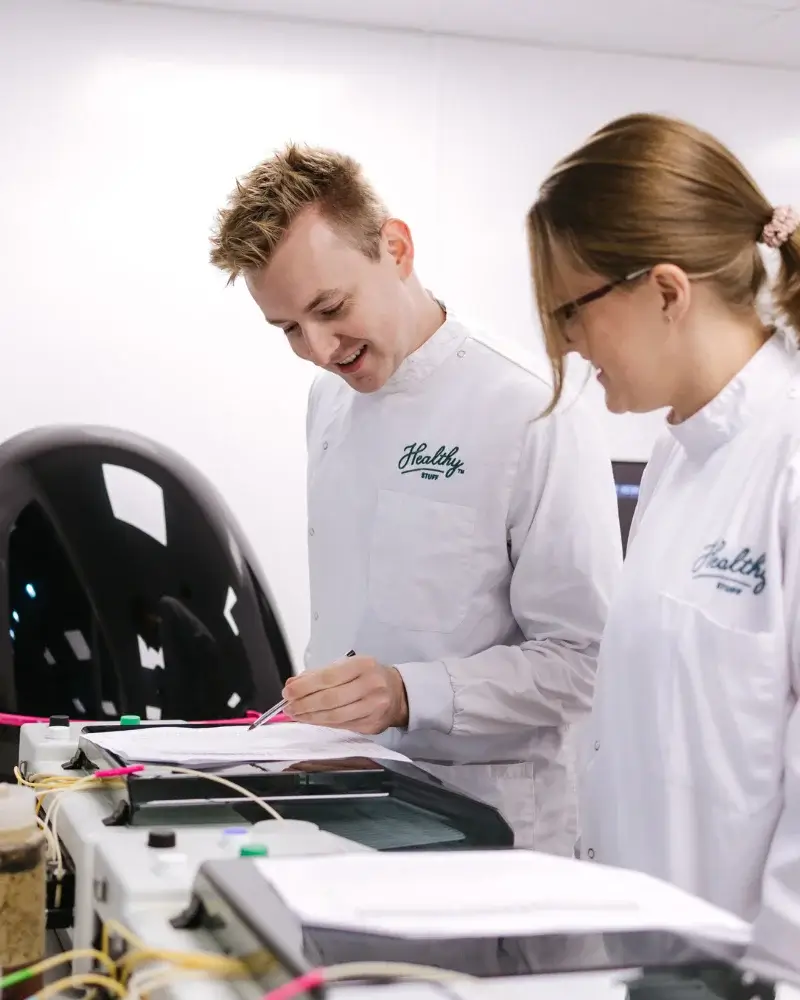
Next the specific conjugate is used. A conjugate has been devised to react to IgG4 antibodies. So, if there have been any reactions to the allergens on the panel, the conjugate will then bind to the complex of antibodies and allergen. If this happens the complex will be marked by the presence of the conjugate binding. This will be left to react for a period of time.
The next step is to use the wash solution again to remove unbound conjugate. A substrates job is to make this reaction complex visible for analysis. There are many ways to do this. We use a colorimetric method, which means we apply a numeric value to the shade of a colour. When we apply the substrate to the panel, if there has been a reaction between a conjugate and an allergen/antibody complex the position on the testing panel will be visibly coloured. If there has been no reaction the substrate won’t react, and the position will remain clear. The three control areas of the panel will always react in the same manner. These controls correlate to three known values of increasing reactivity.
This is just a basic overview of the blood intolerance testing process and the way it works at TMI Testing. However, should you want to know a little bit more about blood spot intolerance testing, our 24-hour support team are happy to help with any queries which you may have.

Supporting research papers:
Atkinson, Sheldon, Shaath, et al (2003) – Food elimination based on IgG antibodies in irritable bowel syndrome: a randomised controlled trial
Summary: A clinically significant improvement in IBS symptomatology was observed in patients eliminating foods to which they were found to exhibit sensitivity, as identified by an ELISA test for the presence of IgG antibodies to these foods.
Dixon HS. (2000) – Treatment of delayed food reactions based on specific immunoglobulin G testing:
Summary: 114 patients in total were tested for food sensitivities using a food specific IgG antibody test. Of the 114 initial subjects, 80 completed the study by following an elimination diet based on their IgG reactive foods. Upon elimination of reactive foods, subjects showed significant improvements in their previously reported symptoms. In subjects who reported having symptoms, the following improvements were observed, 71% of subjects realised a 75% or greater improvement in their condition/s, half of the study group realised 90% or more relief from their symptoms and perhaps most importantly, the 15 patients that did NOT eliminate their reactive foods, experienced no relief in their symptoms.
Lewis et al., (2012) – Eliminating Immunologically-Reactive Foods from the Diet and its Effect on Body Composition and Quality of Life in Overweight Persons:
Summary: Those who eliminated their IgG reactive foods from their diet experienced reductions in weight, BMI, waist & hip circumference. Subjects also saw improvements in all quality of life measures after 90 days.
Bentz et al. (2010) – Clinical relevance of IgG antibodies against food antigens in Crohn’s disease: a double-blind cross-over diet intervention study:
Summary: A nutritional intervention based on circulating IgG antibodies against food antigens showed effects with respect to stool frequency. Significant improvement in Crohn’s disease sufferers who followed diet removing food they showed sensitivity to (food sensitivity highlighted though IgG test). A clinically significant improvement in IBD symptoms was observed in patients eliminating foods to which they were found to exhibit sensitivity.
Why do we test the IgG4 antibody?
We test IgG4 antibodies over IgG1 or total IgG as it leads to a lower level of false-positive reporting and allows for more targeted and relevant result.
IgG1 and IgG4 are the most commonly tested of the antibodies; however, some companies test all subclasses (4) leading to a higher level of positive, and unnecessary, food eliminations. IgG1 and IgG4 are produced in response to food antigens and therefore, can be used to identify intolerances. IgG1 antibodies are ‘first responders’ and as such, reach new food antigens by joining the antigens and forming complexes.
Immune system cells called macrophages quickly destroy these complexes. IgG1 antibodies can additionally activate further immune reactions such as the complement cascade and inflammation.
The IgG4 antibody is a more clinically applicable marker of chronic food-immune reactions and possible intestinal hyper-permeability. IgG4 reaction results are less likely to produce false-positives on in-vitro tests such as our testing.
Our Best Selling Tests
Our most popular blood and hair tests. Our non-invasive bioresonance sensitivity test uses a small hair sample to test 970+ Foods, inhalants, vitamins and minerals. Clinically validated Allergy & Food Intolerance tests using a small blood spot sample to analyse IgE & IgG4 antibody reactions.
- Budget
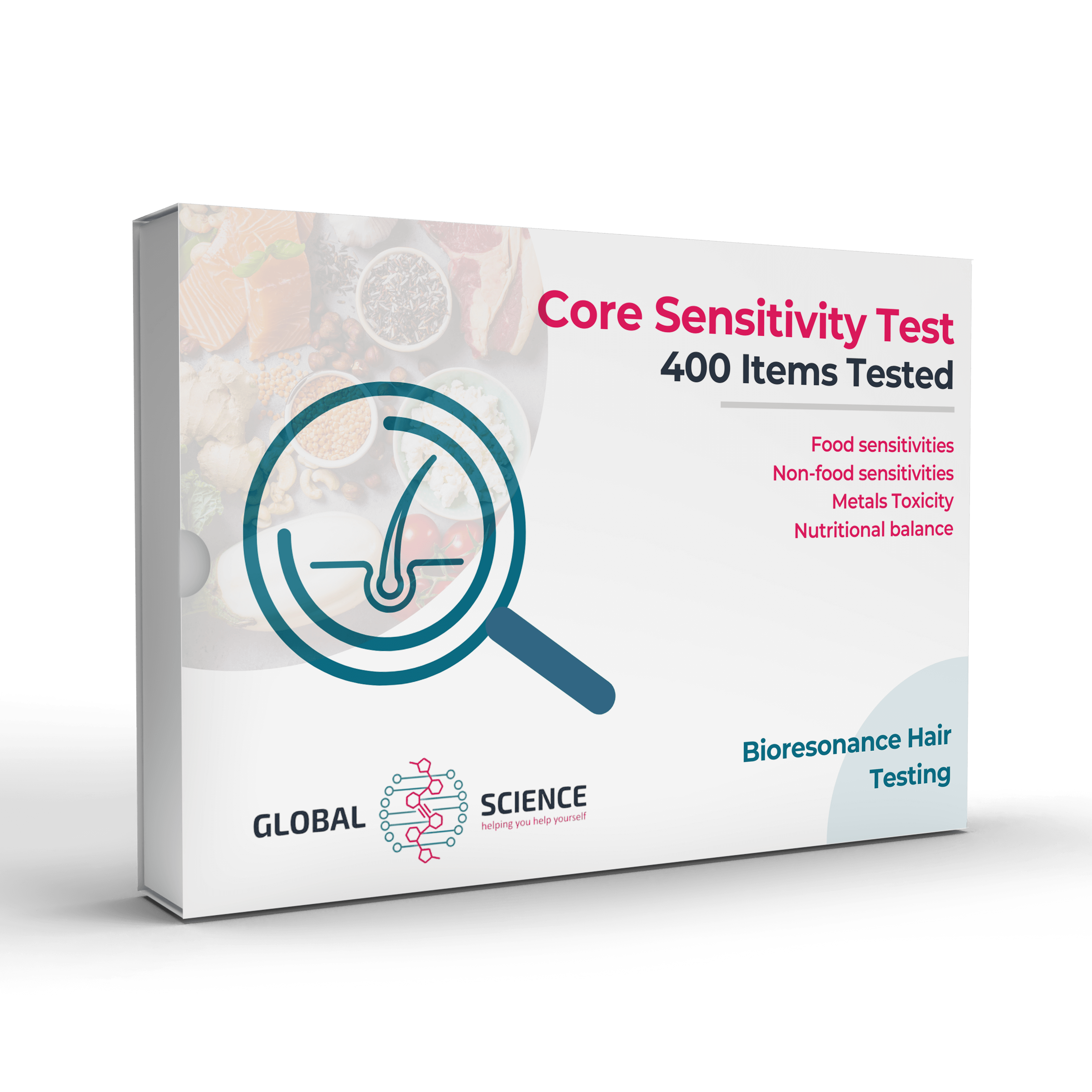
Core Sensitivity Test
Was £69.00 Now £27.00 Save £42.00
400 item food, environmental and metals sensitivity test.
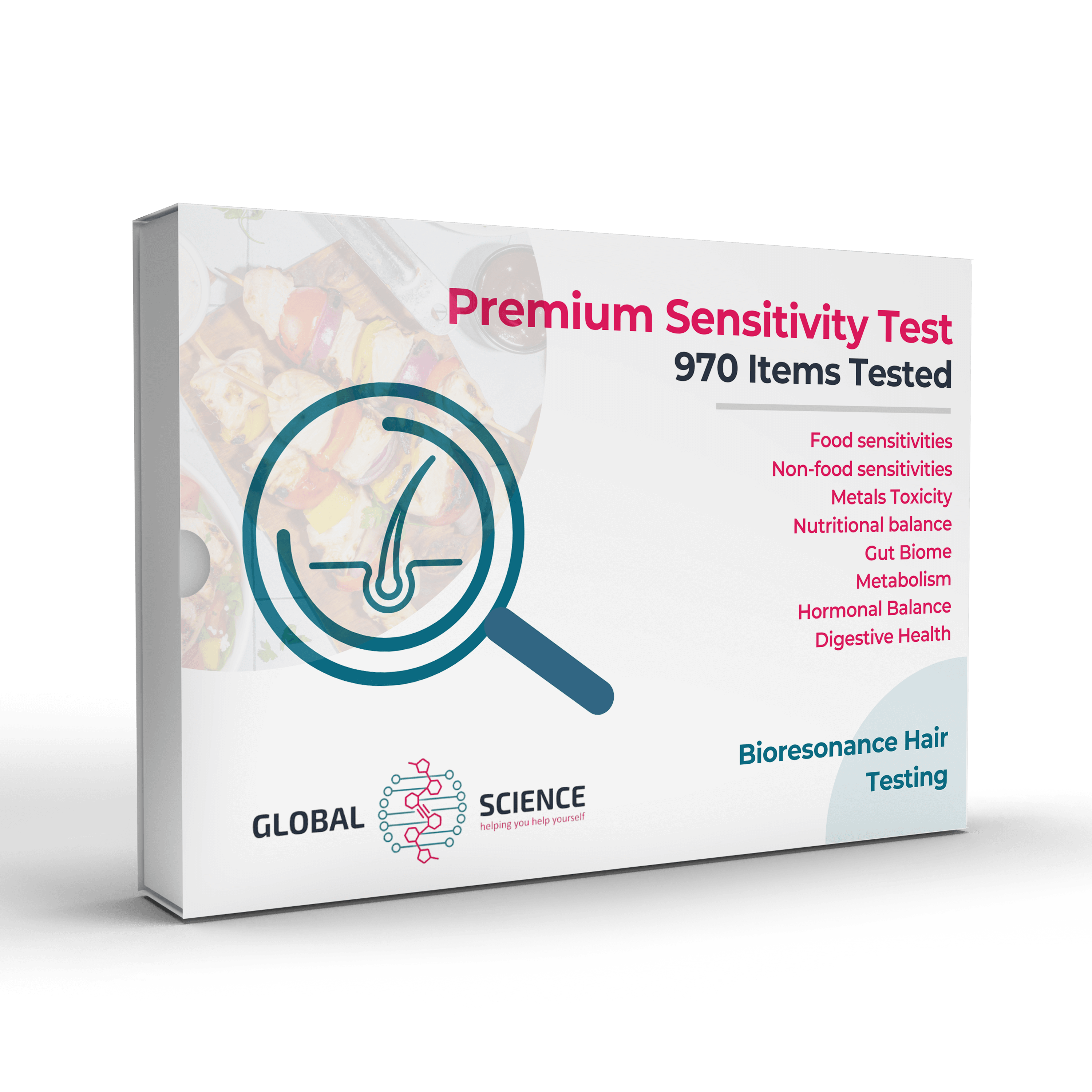
Premium Sensitivity Test
Was £89.00 Now £35.00 Save £54.00
970+ item comprehensive sensitivity and health test report.
- Food & Pollen
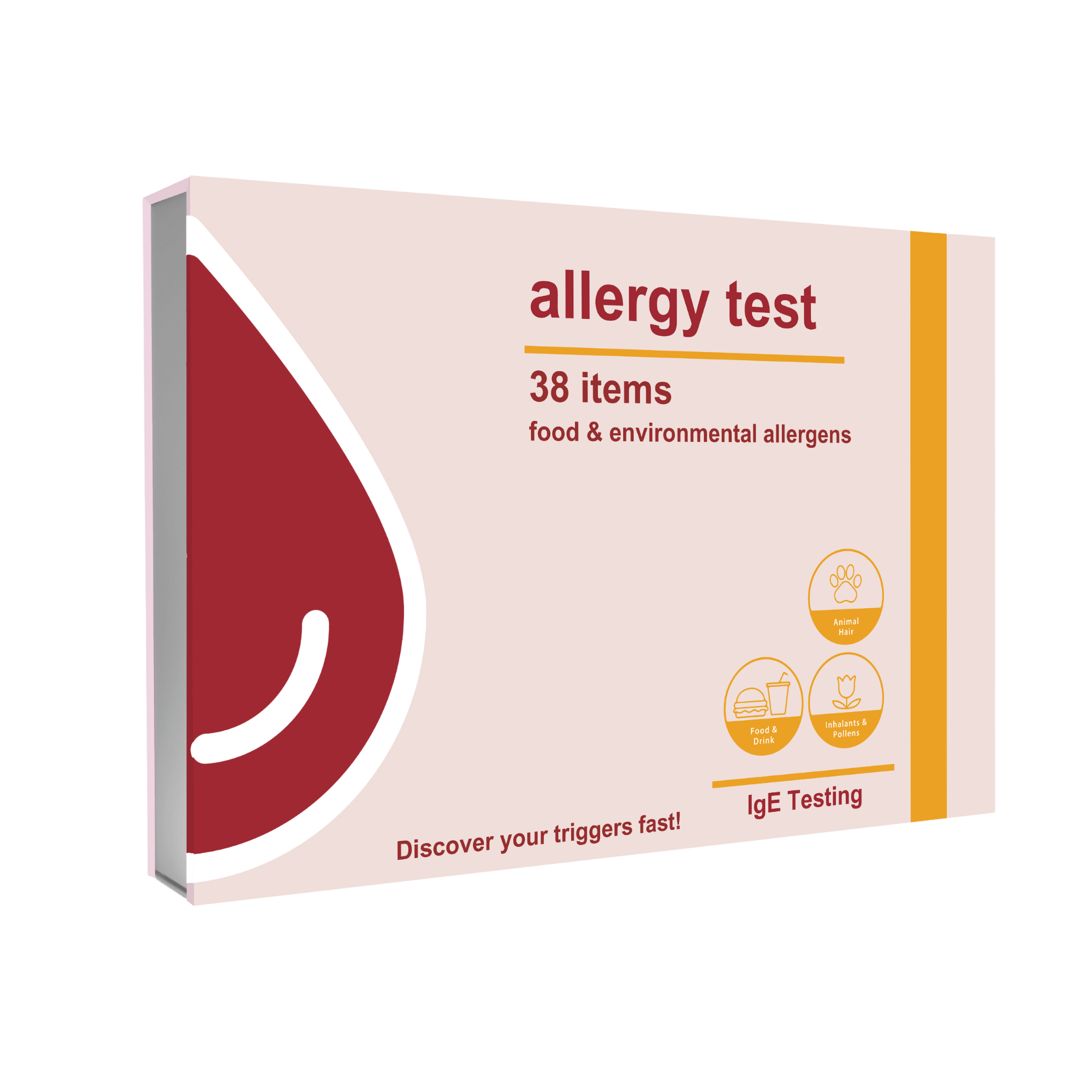
Essential Allergy Test
Was £130.00 Now £79.00 Save £51.00
Essential Allergy testing of 38 food and environmental triggers.
- Most Accurate
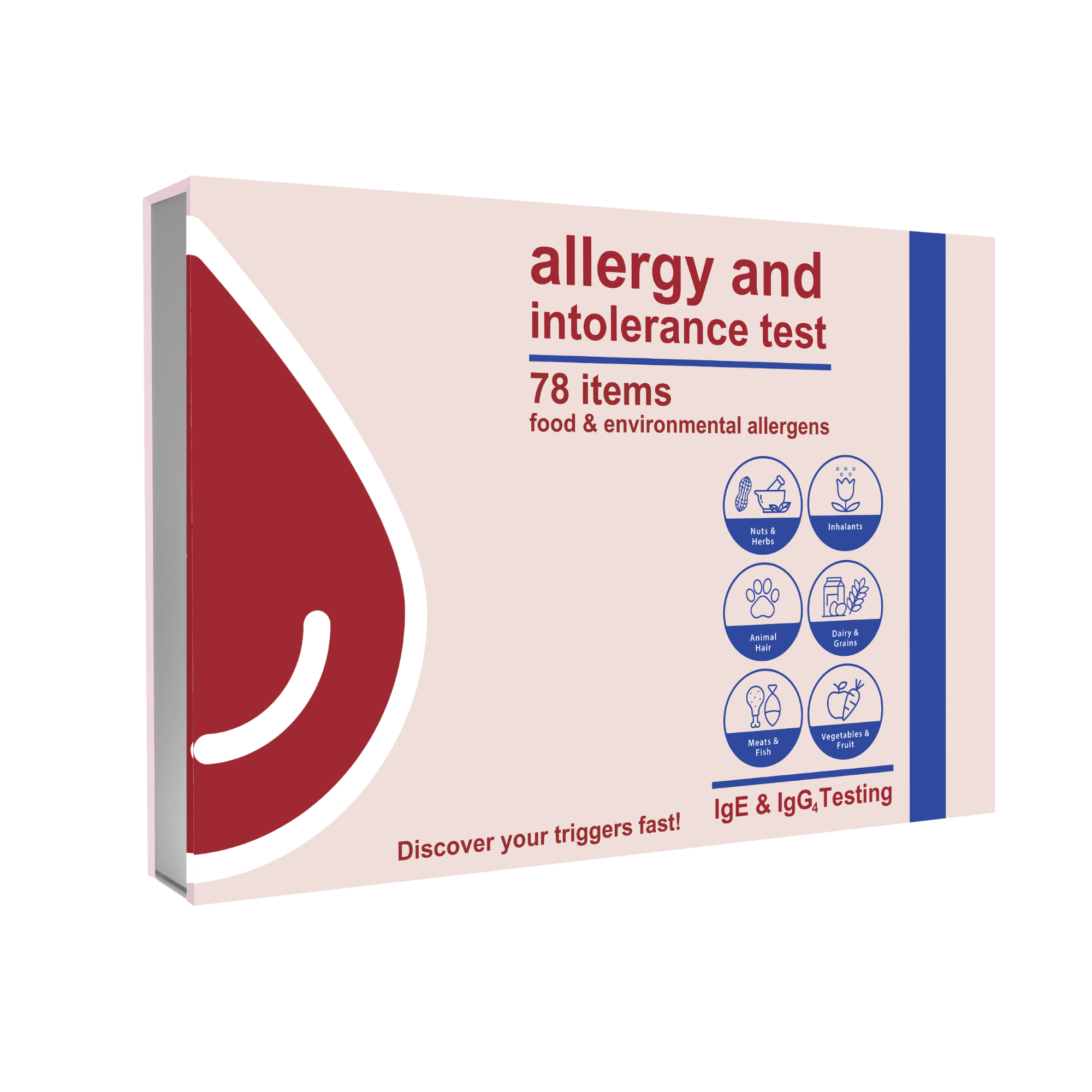
Combined Allergy & Intolerance
Was £195.00 Now £105.00 Save £90.00
Combined Allergy & food Intolerance test of 78 frequent triggers.
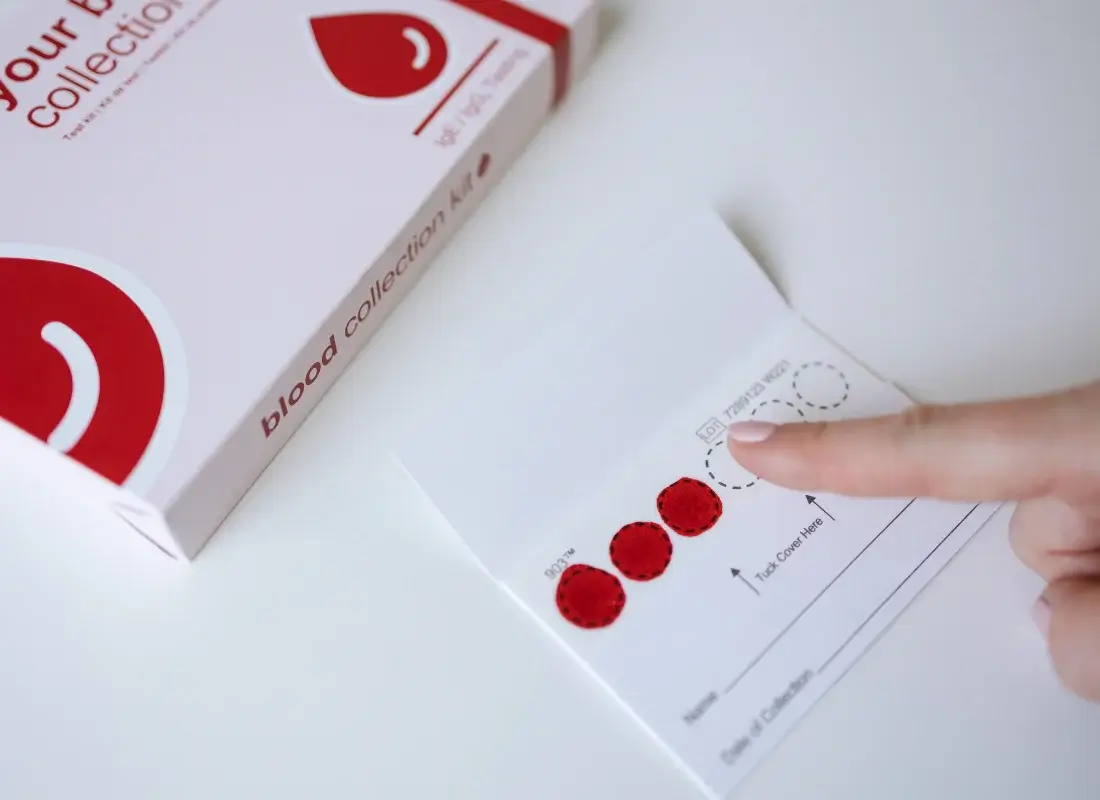
What happens after I receive my results?
Once you have received your report, the first step is to try eliminating the suggested catalysts from your diet. We provide FREE support on: Embarking and gaining progress on an elimination diet
MORE INFORMATION